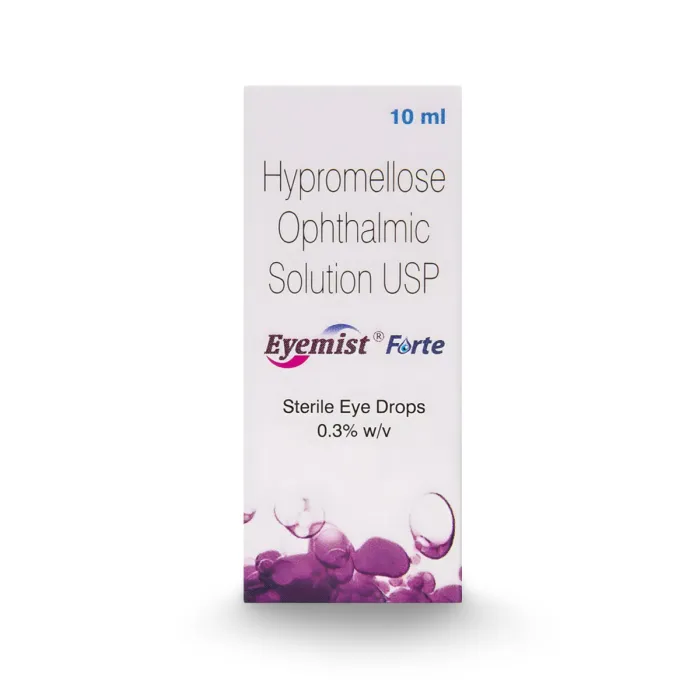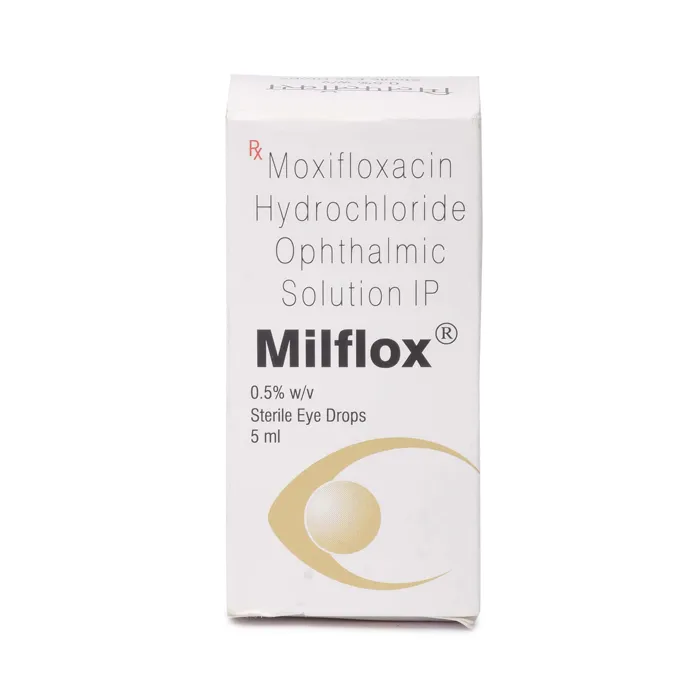Eye allergies like allergic Conjunctivitis and affect millions worldwide. It causes uncomfortable symptoms like itching, redness, and tearing.
Many eye allergy treatment options are available to elimiate the allergen and provide relief. These treatments range from lifestyle changes to over-the-counter medications, prescription medications, and immunotherapy.
This article is your guide to better and more comfortable vision, regardless of the severity of your allergies or irritation.
Eye Allergy Treatment Options
Several treatment choices are available to help manage eye allergies while providing relief.
These options fall into four categories: over-the-counter (OTC) remedies, prescription medications, immunotherapy, and non-pharmacological strategies.
For long-lasting relief, the treatment choice must be customized to your needs and the severity of your allergies.
Below, we have discussed these treatment choices in detail.
Save up to 90% on your medicine bills

Eyemist Forte 10 ml

Milflox 0.5% 5 ml

Restasis 0.05% Ophthalmic Emulsion

Pred Forte 10 ml
Prescription Medications
 Source: dra_schwartz_from_Getty_Images
Source: dra_schwartz_from_Getty_ImagesPrescription medications play an important role in managing moderate to severe eye allergies.
Several options are available, including prescription eye drops and oral medications.
These medications are, typically recommended when over-the-counter treatments prove insufficient.
These prescription medications often contain more potent active ingredients that effectively reduce symptoms such as itching, redness, and swollen eye from allergies.
Your eye care specialist will determine the most suitable prescription medication based on your condition’s severity and specific allergen triggers.
Following your healthcare provider’s recommendations closely is crucial, as some medications may have potential side effects or contraindications.
Prescription medications can provide significant relief, allowing you to enjoy clearer and more comfortable eyes during allergy season.
Over-the-counter (OTC) Treatments
Over-the-counter (OTC) treatments offer a convenient and accessible solution for many individuals with mild to moderate eye allergy symptoms.
These products are available without a prescription and can quickly relieve common symptoms such as itching, red eyes, and swelling.
OTC eye drops for allergies, also known as artificial tears or lubricating drops, can help soothe dry, irritated eyes by providing much-needed moisture.
Antihistamine eye drops are another OTC option that blocks the effects of histamines, reducing redness and itchiness.
Decongestant eye drops can temporarily help relieve allergy-related eye redness.
However, using these products as directed is crucial, as overuse can lead to a rebound effect.
It is highly recommended to seek guidance from a healthcare professional or an eye specialist when considering OTC treatments.
They can suggest the most appropriate products for your particular condition and ensure they do not interfere with any other medications you might be taking.
Non-Pharmacological Treatment
Non-pharmacological treatments provide effective methods for controlling eye allergy symptoms without the need for prescription medicine.
These methods focus on adjusting one’s lifestyle and surroundings to reduce exposure to allergens.
Identifying and avoiding allergy triggers, practicing good eye hygiene, and thinking about dietary modifications are practical actions.
Reducing dust, pet dander, and pollen exposure can help create a home free of allergens, greatly reducing symptoms.
In addition to assisting medical treatments, non-pharmacological methods give people more control over managing their eye allergy symptoms.
By implementing these strategies into your daily regimen, you can significantly reduce the discomfort and irritation in your eyes.
Immunotherapy
Immunotherapy, or allergen-specific immunotherapy, is a specialized treatment option for individuals suffering from severe and constant eye allergies.
This approach involves exposing the immune system to gradually increasing doses of allergens to build tolerance over time.
Immunotherapy is a highly effective solution for those with allergies triggered by specific substances, such as pollen, dust mites, or pet dander.
By desensitizing the immune system to these allergens, it can significantly reduce the severity of allergic reactions, including eye symptoms like itching, redness, and watery eyes.
This treatment is administered via allergy shots or sublingual drops, depending on the allergen and patient preference.
Immunotherapy can provide long-term relief, making it a valuable option for individuals seeking a lasting solution to their eye allergy problems.
Always consult an allergist or immunotherapy specialist to determine if this treatment suits your specific allergy condition.
Severe Eye Allergies Treatment
 Source: Devonyu
Source: DevonyuA proactive and specialized approach is crucial when dealing with severe eye allergies.
Severe cases often display constant redness, intense itching, excessive tearing, and even vision disturbances.
Treatment for severe eye allergies may involve a combination of prescription-strength eye drops, oral medications, and, in some cases, corticosteroids to control inflammation.
Allergy testing can pinpoint specific triggers, enabling targeted avoidance strategies.
For individuals with chronic and severe allergies, allergen-specific immunotherapy (allergy shots) might be recommended.
Timely professional intervention is key to preventing complications and effectively managing severe eye allergy discomfort.
Conclusion
A wide range of treatment options, including prescription medications, immunotherapy, and non-pharmacological measures, can be used as an eye allergy treatment.
It is important to remember that changing your lifestyle and avoiding allergens are crucial for managing your symptoms effectively.
Take the necessary steps to modify your habits and surroundings accordingly.
Even though lifestyle changes and at-home treatments are important, seeing an eye care professional is still essential, particularly in severe cases.
By adhering to the recommended treatment plan, one can experience clearer, more comfortable eyes.

Frequently Asked Questions
What are the common symptoms of eye allergies?
Common symptoms of eye allergies include itching, redness, watery eyes, swelling, and a burning sensation.
In some cases, eye allergies may also cause blurred vision.
Can I manage mild eye allergies without medication?
Yes, mild eye allergies can often be managed non-pharmacologically, including allergen avoidance, eye hygiene, and lifestyle modifications.
Over-the-counter remedies may also provide relief.
How do I know when to consult a doctor for my eye allergies?
It’s advisable to consult a doctor if your symptoms are severe, persistent, or significantly impacting your daily life.
Additionally, a healthcare professional’s guidance may be necessary if over-the-counter treatments are ineffective.
Are there any natural remedies for treating eye allergies?
Natural remedies like applying cold compresses or saline eye drops can relieve pain.
However, consult a healthcare professional before relying solely on natural remedies, especially for severe cases.
What are the potential side effects of prescription eye allergy medications?
The potential side effects of prescription medications can vary, but they may include dry eyes, eye irritation, and blurred vision.
Your doctor will discuss the benefits and risks before prescribing any medication.
Cheap Medicine Shop only refers to credible, authoritative sources for our content. If you’re curious about how we ensure the integrity of our content, we encourage you to read our Content Information Policy.














